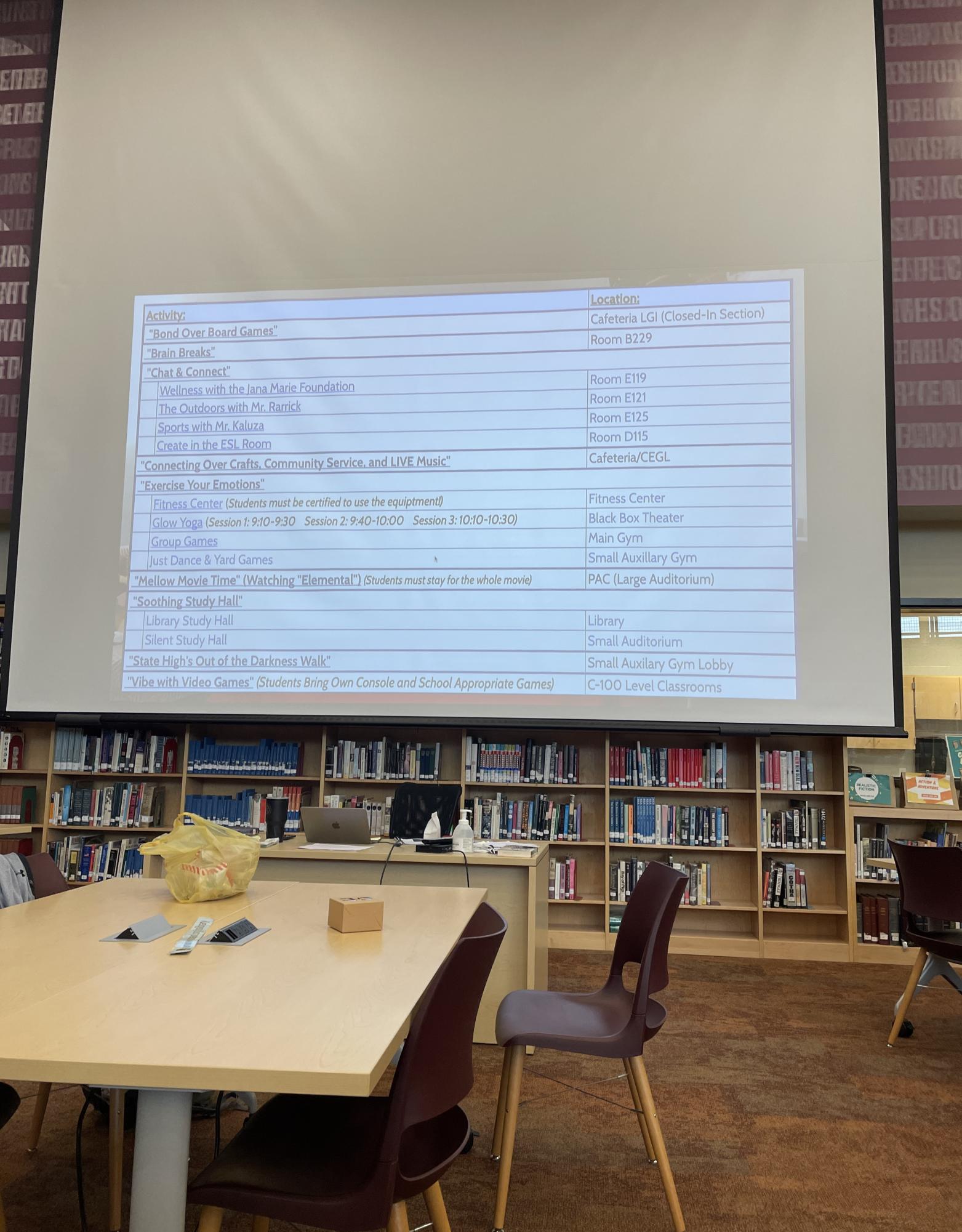It’s official, State High is hosting its first ever Spring Mental Health Summit on March 1, just before spring break.
The December Mental Health Summit received much love from the students. Music, hot cocoa, and festive decorations were enjoyed by many. As a result, coordinators have decided to continue the tradition to be a biannual event.
“Kids can be hard to win over,” Elisabeth James, the SCASD mental health clinician and advisor for the Mental Health Matters club, said, “And so to hear that people are liking [the summit], that just warms my heart.”
As the main spokesperson, James plays a critical role in the planning of the summit. When asked about it, James expressed the event unfolding similar to its winter counterpart, with sectioned stations including video games, arts and crafts, a movie, etc.
Still, the spring summit is under progress and the agenda has not been finalized. “There were some glitches in some areas and it can be improved, so it’s [about] figuring out what worked well and what didn’t–and how can we incorporate that,” James said.
Along with James, English teacher and PBIS coach Jennifer Evans, with her team, sponsors and supports the Mental Health Summit. PBIS, Positive Behavior Intervention and Support, is a program geared toward rewarding positive behaviors rather than focusing on the negative.
Evans emphasized building culture and connection through the summit: a shared time with friends to foster a kind of community within the school walls. “So many of us don’t have the same schedules; you don’t see [friends] in the same lunches or you don’t see [friends] in the same classes,” she said. “So when you have a shared experience, you have a common thing to talk about.”
As high school students, the constant grapple with schoolwork and the anxiety of oncoming adulthood is inevitable. Carving out a moment to step back from the stress is important. The Mental Health Summit, with its inclusive atmosphere, offers students the relief of a break.
With careful management, mental health concerns need to be fully realized without stigmatization.
Yet, active engagement from the student body itself is highly encouraged. “I think there’s a reciprocity,” Evans explained. “So if you are choosing not to participate and choosing not to enjoy, I’m not sure what to do for that person.”
At the end of the day, the Mental Health Summit is beyond just food and games; it is the image of the collective State High community. “Seeing the hands-on, one-on-one, connecting as people — not as our roles. That’s the purpose [of Mental Health Summit],” James said.
The Spring Mental Health Summit stands as not only an opportunity for understanding but also an exciting prelude to the break.








